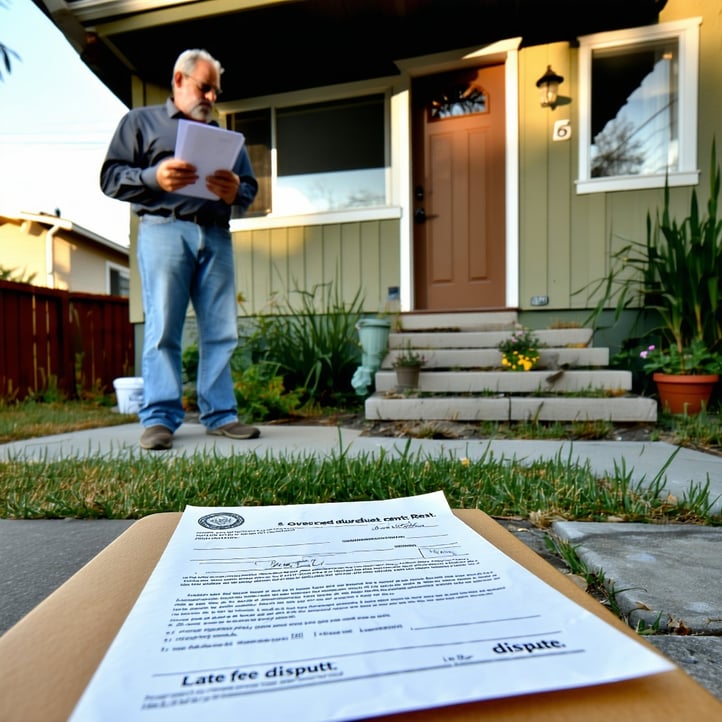If you own a rental property in Carlsbad, Encinitas, Oceanside, or anywhere in North County San Diego, there’s an important California law you need to understand before asking a tenant to move out especially if you plan to move back into the property yourself. Today, we’re sharing the real story of a local landlord named Mike and how following the correct legal steps helped him avoid costly legal trouble and move back into his home on schedule.
Mike’s Situation: A Simple Plan With Complicated Rules
Mike owned a rental home in Carlsbad and had been renting it to a reliable tenant on a month-to-month lease for a couple of years. Eventually, Mike decided he was ready to move back in. His assumption? He’d just send a notice to vacate, and the tenant would move out. It sounds simple but in California, it’s not. Before taking any action, Mike wisely reached out to our team at Raintree Property Management. And that one decision saved him from what could have been a legal and financial mess.
The Law That Catches Landlords Off Guard
Mike’s tenant had lived in the property for more than 12 months. That’s a key threshold under California’s AB 1482, the Tenant Protection Act. Under this law, landlords are required to provide “just cause” if they want to terminate a tenancy after 12 months of occupancy. Just cause means you need a legally recognized reason not just a personal preference.
Mike’s case qualified under the “no-fault just cause” category. That’s when the tenant isn’t being removed for doing anything wrong, but because the landlord has a legitimate reason unrelated to the tenant’s behavior. Wanting to move back into the property is a valid reason but only if the landlord follows specific steps.
Here’s What Mike Needed to Do:
-
Provide a 60-Day Notice to Terminate Tenancy
For tenants who’ve lived in the property more than a year, California law requires 60 days’ notice. -
Include the Reason in Writing
You must state clearly that the termination is due to the owner’s intent to occupy the property as their primary residence. -
Offer Relocation Assistance
For no-fault evictions under AB 1482, landlords must provide relocation help. That means either waiving the last month’s rent or issuing a direct payment equal to one month’s rent, delivered at the same time as the notice.
Because Mike followed the law exactly notice, documentation, and assistance—the tenant had plenty of time to plan their move. There were no disputes, no stress, and no delays. The tenant appreciated the clear communication and support, and Mike was able to move in right on time.
What Could Have Gone Wrong?
Had Mike skipped any of these steps, things could have unraveled quickly. The tenant could have refused to leave, forcing Mike to pursue a formal eviction. Worse, he could have been fined or even sued for violating tenant protection laws. We’ve seen landlords in similar situations make innocent mistakes that ended in court—and cost thousands in legal fees, not to mention the lost time and stress.
Why Local Landlords Need to Be Extra Careful
Many landlords in North County San Diego, Carlsbad, Encinitas, and Oceanside don’t realize just how strict California’s rental laws have become. And these rules don’t just apply to large apartment buildings. If your rental isn’t exempt from AB 1482, the same obligations apply to single-family homes and condos. Some owners try to use old templates or rely on generic lease forms that don’t comply with updated state regulations. Others attempt to negotiate move-outs informally, without understanding their legal obligations. That approach puts them at serious risk.
At Raintree Property Management, we help landlords avoid these traps. We handle every step of the process, from lease compliance to notices and documentation so you don’t have to second-guess whether you’re doing things right.
Here’s How We Help Landlords Like You
- Lease Reviews – We make sure your lease includes all required legal disclosures and protections under California law.
- Termination Notices – We draft and deliver notices that meet legal standards, including relocation assistance terms.
- Tenant Communication – We handle all communications with your tenant in a professional, compliant manner to reduce friction.
- Timeline Tracking – We keep track of deadlines to ensure you stay within required notice periods.
- Legal Compliance – We stay on top of every new update to California rental law, so you don’t have to.
Planning to Move Back Into Your Property?
If you’re considering moving back into your rental now or in the future don’t risk doing it the wrong way. California’s rules are clear but easy to overlook, especially when you’re balancing personal plans and property management tasks.
Start with a free rental analysis from our team at Raintree Property Management. We’ll walk you through your options, and help you stay protected from liability so you can move forward with confidence.
👉 Click here to request your free rental analysis.
Final Thoughts
Mike’s story is a great reminder that good intentions aren’t enough when it comes to ending a tenancy in California. Whether you’re moving back in, selling your rental, or simply transitioning to a new tenant, you need to understand the legal steps involved. Doing it the right way not only protects your finances it also protects your reputation and relationships. At Raintree Property Management, we’re here to guide you through it.
Serving landlords in Carlsbad, Encinitas, Vista, Oceanside, and all of North County San Diego—so you can stay focused on what matters most.




